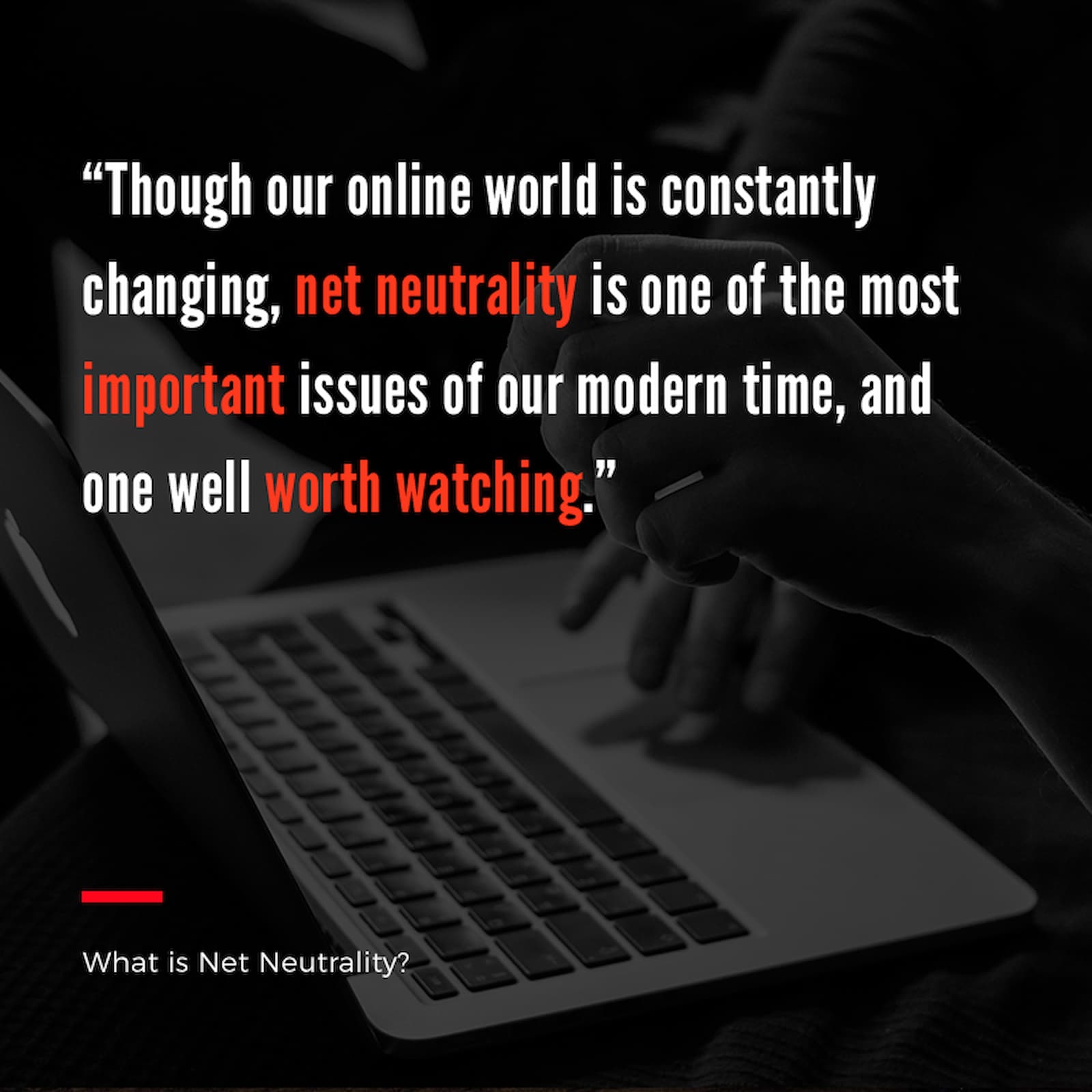There are buzzwords and then there’s “net neutrality.” Although online petitions, social media awareness campaigns and support from multiple big-name websites and online services have been around for years, the landmark move to repeal net neutrality has, once more, brought the idea of protecting a “free internet” to the forefront.
Foregoing the political issues that swirl into this issue, we can give you a just-the-facts look at what net neutrality is, what the Federal Communications Commission’s (FCC) repeal means and how it may affect the future of the internet.
Defining Net Neutrality
The tenets of net neutrality, when you boil them down, are rather straightforward:
- There is to be no discrimination of data based on its content.
- Internet service providers (ISPs) cannot block content or throttle service based on data.
- There shall be no paid prioritization that will allow certain websites faster service for a paid premium.
ISPs are the big dogs you might expect: AT&T, Xfinity, Verizon, Cox, Spectrum and others, just to give you an idea of the players involved. Though the idea of net neutrality has been around since the early 2000s, it only became policy in 2015, when it was introduced by the FCC within the Communications Act. Through this policy, the FCC was given more oversight on these ISPs to ensure that the internet remained free from meddling based on corporate interests. This helped safeguard the internet from companies that might put their own interests above their customers.
Why the Push to Abolish Net Neutrality?
So, what is the argument against net neutrality? Without getting mired in the political minefield of the issue, the current FCC fears that these regulations could impede the market, as well as set the stage for a slippery-slope scenario that would allow unconstitutional government interference and monitoring.
According to Ajit Pai, FCC chairman and outspoken advocate for abolishing net neutrality, removing this regulation would inspire greater investment into smaller ISPs, leading to business growth and allowing these companies to provide new services and potentially create more competition, driving down prices and making the internet available to a larger portion of the public.
Where Does Net Neutrality Stand Right Now?
As of Thursday, December 14, 2017, the FCC has officially repealed net neutrality. Though the repeal will likely take weeks to fully roll out, ISPs will no longer be as closely regulated as they have been since 2015. Pai has assured the public that customers will remain protected, but news of the repeal has largely been met with disappointment and fear.
So, what do you have to know about the net neutrality repeal?
- Prices may rise, but not immediately. Without net neutrality regulations, ISPs may begin charging larger online entities, like Netflix, more than websites with a smaller online footprint. If that happens, users can expect to see a price hike on their services.
- The repeal will face scrutiny and lawsuits. Though net neutrality has been successfully repealed, that doesn’t mean that those who oppose it have given up the fight. The FCC is set to face many legal challenges to its decision to repeal.
- ISPs are speaking a good game. With net neutrality repeal unshackling ISPs from the regulations enacted in 2015, many were left fearful of immediate changes to their internet service. Luckily, at least for the time being, most of the major ISPs have pledged to not throttle service or engage in paid prioritization.
- Price drops are not on the horizon. Though one of Pai’s big selling points for repeal was a lower bar of entry for more Americans to get online, even in the best of cases, this would not happen for some time. The idea is that lower regulation could lead to smaller ISPs entering the market and providing more competition, leading to lower prices. However, this will not happen in the near future, considering just how long it will take for the market to adapt to lower regulations but higher public scrutiny.
- There is still a level of protection for consumers. Though the FCC has dropped its responsibility to enforce regulations against ISPs, the Federal Trade Commission (FTC) is now charged with providing oversight. It is up to the FTC to protect the public from the harmful business practices that net neutrality regulated prior to its repeal. Through public complaints, the FTC can be alerted to companies breaking their consumer protection and antitrust laws.
Though net neutrality repeal is worrisome to many of us, it’s important to remember that the public isn’t being completely left out to dry. The FTC is still providing oversight and there are many opposers who are ready to go to court in order to instill harder regulations on the ISPs we rely on to access our favorite websites, social media platforms and online services.
Though our online world is constantly changing, net neutrality is one of the most important issues of our modern time, and one well worth watching.


